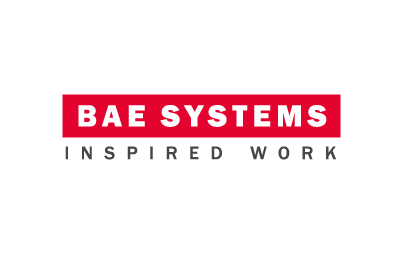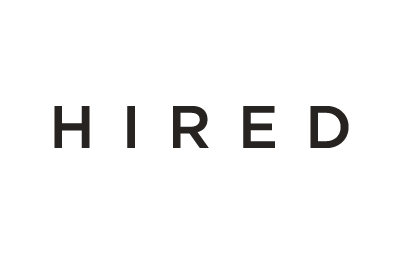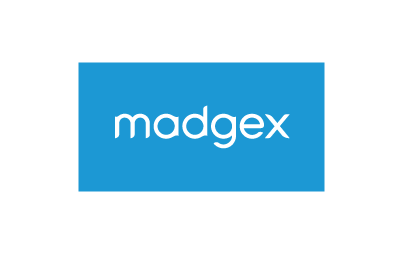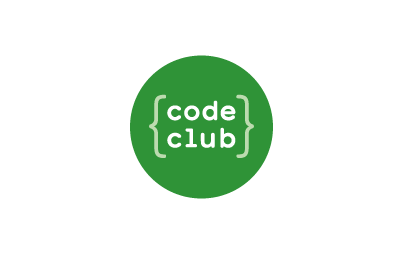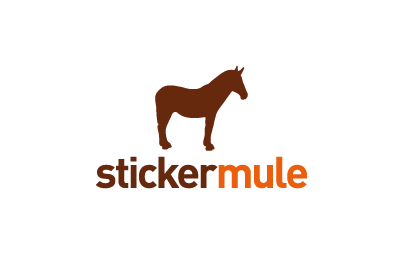Talks
What I wish I knew as a first time Tech Lead
The path from being a developer to a Tech Lead seems like a scary transition. As a developer, you could focus on constantly learning new tools, libraries, frameworks and programming languages. It was mostly you and the computer. The Tech Lead role feels like a path where you will no longer get to code. You feel like you know what makes a good developer, but you’re unsure about what makes a good Tech Lead. In this talk, Pat Kua will reveal the lessons he wishes he’d learnt as a first time Tech Lead.
About Patrick Kua
Patrick is a Principal Technical Consultant at ThoughtWorks who is normally found leading development teams. He is a conference speaker and author of The Retrospective Handbook and Talking with Tech Leads and is passionate about bringing a balanced focus on people, organisation and technology.

Patrick Kua
Principal Technical Consultant at ThoughtWorks
About Patrick Kua
Patrick is a Principal Technical Consultant at ThoughtWorks who is normally found leading development teams. He is a conference speaker and author of The Retrospective Handbook and Talking with Tech Leads and is passionate about bringing a balanced focus on people, organisation and technology.
The seven righteous fights
It’s empowering for developers and other people involved in the inception of a project to have tools for making the project better long-term.
This talk highlights the seven things that should be considered very early in development:
- Localization. Are you ever planning on selling this to someone in another country?
- Security. Don’t be the organization that has to pay someone for disaster PR. Building in security early saves you a bunch of time and user churn later.
- Extensibility. What makes you so sure this API will always be internal?
- Documentation. People do not buy software solely based on PowerPoints. You need public documentation. It has to be more useful than Stack Overflow.
- Affordance. UI is not actually a word. People change how they feel about you based on your microtext and error messages.
- Acceptance. Have you shown this to any actual humans? Who are like the users?
- Accessibility. We all use computers different ways. Does your software allow that?
Leaving these considerations to the end is like baking a cookie and then trying to poke chocolate chips into it after it’s done.
About Heidi Waterhouse
Heidi is an experienced technical writer with a passion for usability, utility, and chewy Sweet Tarts. She likes to speak on topics such as search-first writing, writing for people who aren’t writers, and feminist interpretations of YA. You can usually spot her in a crowd by her bright hair and handmade clothes.

Heidi Waterhouse
Knowledge Engineer
About Heidi Waterhouse
Heidi is an experienced technical writer with a passion for usability, utility, and chewy Sweet Tarts. She likes to speak on topics such as search-first writing, writing for people who aren’t writers, and feminist interpretations of YA. You can usually spot her in a crowd by her bright hair and handmade clothes.
The journey from monolith to microservices: a guided adventure
Are you starting a new application and wondering whether to go with a monolith or take the microservices path? Do you have an existing application that is getting too big to deliver business value with a predictable velocity? Ever wonder how to regain the agility you had when an application was smaller?
The current discussions around application architecture with microservices seem like an all or nothing journey without any stops along the way to catch your breath. This talk outlines questions to ask yourself to drive decisions along the way. It also demonstrates one possible path for future growth, complete with intermediate stops along the way where you can pause to evaluate your next step. This path avoids implementing too much complexity early in the process.
At the end of the journey you will not only have ideas to guide your own path, but tools that you can use to make the journey easier and less costly.
About Mike Gehard
Mike works at Pivotal in Boulder, Colorado. His day to day job is helping clients build software that helps their businesses succeed. When he’s not in the office, you can find him out riding his mountain bike or climbing in the hills around Boulder.

Mike Gehard
Pivotal Labs
About Mike Gehard
Mike works at Pivotal in Boulder, Colorado. His day to day job is helping clients build software that helps their businesses succeed. When he’s not in the office, you can find him out riding his mountain bike or climbing in the hills around Boulder.
The wonderful world of webhooks
In an increasingly connected world, APIs are key to great tools and effective workflows. What is better than an API? A webhook of course! Webhooks are the modern way for integrating systems and allowing them to react to one another. This session will cover what a webhook is, and where we might see or use them in our day-to-day activities. We’ll also look at how they can become part of our workflow, by bringing information into our chat channels, integrating with other tools such as Zapier or Hubot, and generally oiling the wheels of our daily work.
About Lorna Mitchell
Lorna is based “up north” in Leeds; she is a Developer Advocate at IBM Cloud Data Services, an experienced developer and a published author. She brings her technical expertise to audiences all over the world with her writing and speaking engagements, delivering advice on a wide range of topics, all with a very practical slant. In her spare time, Lorna runs the joind.in open source project and blogs at lornajane.net.

Lorna Mitchell
Web development consultant
About Lorna Mitchell
Lorna is based “up north” in Leeds; she is a Developer Advocate at IBM Cloud Data Services, an experienced developer and a published author. She brings her technical expertise to audiences all over the world with her writing and speaking engagements, delivering advice on a wide range of topics, all with a very practical slant. In her spare time, Lorna runs the joind.in open source project and blogs at lornajane.net.
How to make a sandwich
Feedback is one of the most important skills when collaborating with others. Giving and receiving feedback with honesty, integrity and empathy is hard. Doing so consistently takes practise and requires learning and practising feedback and listening techniques.
In this session, Dan discusses a number of feedback models and techniques, and shows you where and how you can apply them. He explains the infamous and much-misunderstood “sandwich model” of feedback, how it works and why it usually doesn’t, and looks at some of the failure modes of feedback. Are you using feedback to help your colleagues and yourself to grow, or are you using it to coerce and control them? How do you know? And what does any of this have to do with Systems Theory?
After this session you will be better equipped to offer feedback, more resilient when receiving feedback, and maybe more aware of your own motivations for doing so.
About Dan North
Dan North uses his deep technical and organisational knowledge to help CIOs, business and software teams to deliver quickly and successfully. He puts people first and finds simple, pragmatic solutions to business and technical problems, often using lean and agile techniques. With over twenty years of experience in IT, Dan is a frequent speaker at technology conferences worldwide. The originator of Behaviour-Driven Development (BDD) and Deliberate Discovery, Dan has published feature articles in numerous software and business publications, and contributed to The RSpec Book: Behaviour Driven Development with RSpec, Cucumber, and Friends and 97 Things Every Programmer Should Know: Collective Wisdom from the Experts.

Dan North
Technology and organisational consultant at Dan North Associates
About Dan North
Dan North uses his deep technical and organisational knowledge to help CIOs, business and software teams to deliver quickly and successfully. He puts people first and finds simple, pragmatic solutions to business and technical problems, often using lean and agile techniques. With over twenty years of experience in IT, Dan is a frequent speaker at technology conferences worldwide. The originator of Behaviour-Driven Development (BDD) and Deliberate Discovery, Dan has published feature articles in numerous software and business publications, and contributed to The RSpec Book: Behaviour Driven Development with RSpec, Cucumber, and Friends and 97 Things Every Programmer Should Know: Collective Wisdom from the Experts.
How do you get an engineering team to eat their vegetables?
Many factors contribute to developer happiness. However, as engineers, we’re often singularly obsessed with the idea that our job satisfaction comes solely from solving only the most interesting technical challenges. In reality, research shows that we perform best when we are rested, feel valued, and feel connected to a cause so we can focus on high-priority work.
This talk will focus on ways engineering teams can foster excellent working environments and cultures with minimally felt process: much like sneaking vegetables into desserts.
About Duretti Hirpa
Duretti is a senior engineer on the backend engineering team at Slack. Currently, she’s working on the new user experience team, though she’s also spent time on the Slack Platform team, making it easier and more intuitive to build applications on top of Slack. She is constantly thinking of ways to humanise the engineering – there’s strength in the soft skills after all.
Duretti is probably the most extroverted person she knows, and is intensely interested in other people. She produces a podcast called “snackoverflow”, about snacks, computers, and their surprising intersection. She has an undying love for Beyonce (praise be), an immaculate gif game, and a real candy problem.

Duretti Hirpa
Senior Engineer at Slack
About Duretti Hirpa
Duretti is a senior engineer on the backend engineering team at Slack. Currently, she’s working on the new user experience team, though she’s also spent time on the Slack Platform team, making it easier and more intuitive to build applications on top of Slack. She is constantly thinking of ways to humanise the engineering – there’s strength in the soft skills after all.
Duretti is probably the most extroverted person she knows, and is intensely interested in other people. She produces a podcast called “snackoverflow”, about snacks, computers, and their surprising intersection. She has an undying love for Beyonce (praise be), an immaculate gif game, and a real candy problem.
Writing Modular CSS with CSS modules
This talk will introduce WebPack and will demonstrate how to write, bundle and use CSS Modules.
About Katie Fenn
Katie Fenn is a software engineer with ten years of experience working with JS, CSS and PHP.

Katie Fenn
Senior Software Engineer
About Katie Fenn
Katie Fenn is a software engineer with ten years of experience working with JS, CSS and PHP.
"I know just the person!" - networks and hiring in tech
In a fast developing industry such as tech, the acquisition and retention of talent is a crucial success factor. Often, hiring through personal networks can lead to a quicker and more successful hiring process than traditional methods – and sometimes contacts can even encourage under-represented groups to apply for positions they wouldn’t consider otherwise. But there’s a downside: personal networks are significantly different in size, structure and utilisation depending on a person’s social origin and gender. Does hiring through networks lead to an exclusion of whole social classes? Do contacts influence retention time positively for men yet not for women?
This talk presents current research results and provides suggestions on how to tackle talent acquisition in tech without giving up on representation and diversity.
About Yasmina Banaszczuk
Yasmina has recently completed her PhD on networks and career entry and has been working as a strategic consultant for NGOs and start ups on diversity and community and employee management.
She loves what she does and she loves challenging people’s perception of things.
Yasmina lives in Berlin and is still trying to figure out this city - but she loves the internationality here. She’s a passionate player of all kinds of games – video and board alike – and a dedicated coffee lover.

Yasmina Banaszczuk
Strategic Consultant
About Yasmina Banaszczuk
Yasmina has recently completed her PhD on networks and career entry and has been working as a strategic consultant for NGOs and start ups on diversity and community and employee management.
She loves what she does and she loves challenging people’s perception of things.
Yasmina lives in Berlin and is still trying to figure out this city - but she loves the internationality here. She’s a passionate player of all kinds of games – video and board alike – and a dedicated coffee lover.
Telling stories through your commits
As your codebase and development team grow, being able to communicate how and why your code has evolved is crucial to your ability to continue to change it.
Our version control history is a living, ever-changing, searchable record that tells the story of how and why our code is the way it is. The ability to document your code effectively using Git (or any other version control system) is an invaluable skill which allows your team to make informed decisions about future code changes.
This talk will outline some of the key practices which can be adopted to make your version control history tell a valuable story about your codebase, and how you can embed these practices with in your team.
About Joel Chippindale
Joel Chippindale is the CTO at FutureLearn, a social learning platform. He feels lucky to be in a role that mostly involves saying ‘yes’ to people when they inevitably think of better ways of doing things than he possibly could. He also likes drinking tea and is a member of the London Computation Club.

Joel Chippindale
CTO at FutureLearn
About Joel Chippindale
Joel Chippindale is the CTO at FutureLearn, a social learning platform. He feels lucky to be in a role that mostly involves saying ‘yes’ to people when they inevitably think of better ways of doing things than he possibly could. He also likes drinking tea and is a member of the London Computation Club.
Building new on top of old: the argument for simplicity
The software industry is surrounded by complexity, with new solutions to old problems appearing daily. Creators of software constantly face questions about how to best navigate changing technology tides while still building their “ships”. Building these ships, or building software, requires picking challenges and making sensible technical choices to move fast without compromising stability.
In this talk, GitHub’s Senior Director of Infrastructure Engineering, Sam Lambert, will explore how GitHub steers its ship—the world’s largest software host serving over 11M users—on top of stable, proven systems and services. He’ll speak specifically about how these practices can be translated to any type of software creation by focusing on:
- The importance of pragmatism during building and maintaining software systems.
- How a company like GitHub moves fast and breaks as little as possible by carefully choosing what problems to tackle.
- The role new technologies can play in informing decisions and approaches around what problems to solve.
About Sam Lambert
Sam Lambert is the Senior Director of Infrastructure Engineering at GitHub. He is an experienced engineer who focuses on growing the technical organisation responsible for GitHub’s core services. Sam is passionate about technical leadership and building high performing engineering teams. He has spent his two years at GitHub applying his experience to positively impact the availability and performance of its technologies while also advocating for simplicity and pragmatism within the engineering community.
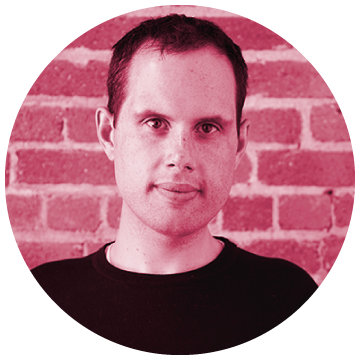
Sam Lambert
Senior Director of Infrastructure Engineering at GitHub
About Sam Lambert
Sam Lambert is the Senior Director of Infrastructure Engineering at GitHub. He is an experienced engineer who focuses on growing the technical organisation responsible for GitHub’s core services. Sam is passionate about technical leadership and building high performing engineering teams. He has spent his two years at GitHub applying his experience to positively impact the availability and performance of its technologies while also advocating for simplicity and pragmatism within the engineering community.
How to crash an airplane
On July 19, 1989, United Airlines Flight 232 was en route to Chicago when a mechanical failure caused the plane to become all but uncontrollable. In this unsurvivable situation, the flight crew saved more than half of those onboard. How did they do it?
Flight crews and software teams actually have a lot in common, and there’s much we can learn from how the best crews do their jobs. What can we learn from the story of United 232? While this talk won’t earn you your pilot’s license, you’ll definitely come away with some fresh ideas on how to make your team even more amazing.
About Nickolas Means
Nick hails from Austin, TX, the Taco Capital of the World. When he’s not busy eating tacos, he’s the VP of Engineering at Wellmatch Health, working with an incredibly talented team of developers to bring transparency to healthcare pricing. He’s a huge believer that software development is mostly human interaction and that empathy is the key to building great software.

Nickolas Means
VP of Engineering at WellMatch Health
About Nickolas Means
Nick hails from Austin, TX, the Taco Capital of the World. When he’s not busy eating tacos, he’s the VP of Engineering at Wellmatch Health, working with an incredibly talented team of developers to bring transparency to healthcare pricing. He’s a huge believer that software development is mostly human interaction and that empathy is the key to building great software.
Leadership. By the numbers.
A series of simple numbers can represent a useful and memorable corpus of hard-earned leadership experience. This talk will succinctly explain essential leadership lessons that you can either heed or simply wait to experience.
About Michael Lopp
Michael Lopp is a Silicon Valley-based engineering leader who builds both people and product at companies such as Borland, Netscape, Palantir, and Apple. When he’s not worrying about staying relevant, he writes about pens, bridges, people, poker, and werewolves at the popular weblog, Rands in Repose.
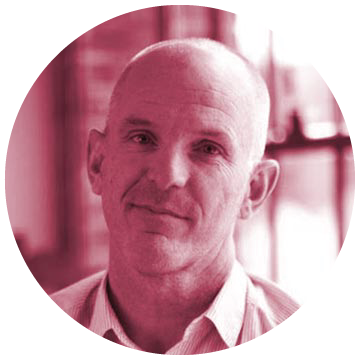
Michael Lopp
VP of Engineering at Slack
About Michael Lopp
Michael Lopp is a Silicon Valley-based engineering leader who builds both people and product at companies such as Borland, Netscape, Palantir, and Apple. When he’s not worrying about staying relevant, he writes about pens, bridges, people, poker, and werewolves at the popular weblog, Rands in Repose.
Hacking verbal communication systems
This talk will outline how to achieve better communication by replacing parts of your talking protocols.
About Ryan Alexander
Ryan is the Lead Developer for the Money Advice Service. He’s been described as ‘Totoro-esque’ which he likes a lot.

Ryan Alexander
Lead Developer at Money Advice Service
About Ryan Alexander
Ryan is the Lead Developer for the Money Advice Service. He’s been described as ‘Totoro-esque’ which he likes a lot.
Tour of language landscape
There seems to be a new programming language every week, and for us busy developers we just don’t have the time to keep up with them. But have you wondered what we might have missed out on whilst we’re busy working in our language of choice?
Having spent time with numerous programming languages the past few years, Yan Cui has learnt something new from each. In this talk, he will give a whirlwind tour of the interesting concepts and ideas he has encountered, from F#’s type providers and Rust’s borrowed pointers, to Elm’s signals and Idris’s dependent types to name a few.
About Yan Cui
Yan is a Server Architect Developer at Yubl, and a regular speaker at user groups and conferences. He keeps an active blog and is a co-author of “F# Deep Dives”.

Yan Cui
Server Architect Developer at Yubl
About Yan Cui
Yan is a Server Architect Developer at Yubl, and a regular speaker at user groups and conferences. He keeps an active blog and is a co-author of “F# Deep Dives”.
Addressing Imposter Syndrome
Impostor Syndrome is the feeling that you aren’t really qualified for the work you are doing and will be discovered as a fraud. Many women, People of Color, QUILTBAG persons, and others from marginalized groups experience Impostor Syndrome, especially when they’ve (we’ve) been socialized to value others’ opinions of work above their own. People developing new skills (something we must do constantly in tech) are also prime sufferers. Want help overcoming your Impostor Syndrome and decreasing its incidence in your community? This talk is for you.
About Crystal Huff
Crystal Huff is the Executive Director of Inclusion Through Innovation and a former Executive Director of The Ada Initiative. She has a long history of professional and volunteer work in various parts of tech and geek culture, with a particular commitment to anti-harassment and impostor syndrome work. Crystal has been an invited speaker at events in Sweden, Finland, China, Canada, the UK, and across the USA.
Crystal runs science fiction conventions in her spare time, and is co-chairing the upcoming 75th World Science Fiction Convention in Helsinki, Finland. She speaks fluent English, rusty American Sign Language, and beginner Finnish cussing.

Crystal Huff
Executive Director of Inclusion Through Innovation
About Crystal Huff
Crystal Huff is the Executive Director of Inclusion Through Innovation and a former Executive Director of The Ada Initiative. She has a long history of professional and volunteer work in various parts of tech and geek culture, with a particular commitment to anti-harassment and impostor syndrome work. Crystal has been an invited speaker at events in Sweden, Finland, China, Canada, the UK, and across the USA.
Crystal runs science fiction conventions in her spare time, and is co-chairing the upcoming 75th World Science Fiction Convention in Helsinki, Finland. She speaks fluent English, rusty American Sign Language, and beginner Finnish cussing.
How not to burn out your monitoring team
Bad monitoring, alerting and logging has made Gil Zellner very frustrated in some of his previous positions. It seems that almost nobody gets this exactly right. This will be a talk about the most annoying issues he has come across and advice for how to fix them.
About Gil Zellner
Created by 2 engineers in the 80s, survived Israel Institute of Technology in the 2000’s, worked at Gett and a few others, develops Cloudify at Gigaspaces.
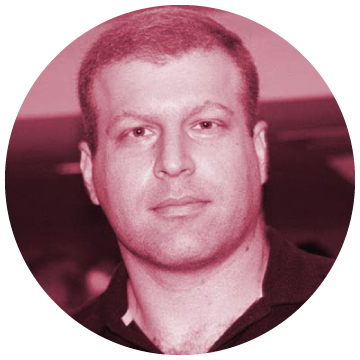
Gil Zellner
Cloudify Developer
About Gil Zellner
Created by 2 engineers in the 80s, survived Israel Institute of Technology in the 2000’s, worked at Gett and a few others, develops Cloudify at Gigaspaces.
Leading Leads - Lessons from a growing team
Leading a growing team is exciting – it means you’ve earned the trust to expand out and your team is able to take on new, bigger challenges. It also means your team might outgrow you, and you need new lead developers to help things scale. Congratulations, you’ve just entered a totally new scope of leadership, leading a lead!
Leading other leads is an exciting and scary step to take. It’s now your responsibility to set expectations and goals, provide feedback, and support your team. This talk will highlight lessons learned from Monika’s own transition to leading leads. She’ll talk about challenges in reframing your role, as well as the opportunities for your own growth when your team member has a team to lead of their own.
About Monika Piotrowicz
Monika Piotrowicz is a Director of Front End Development at Shopify, a commerce platform that helps users sell online, on mobile, and in person. A front end developer by craft, Monika is passionate about using HTML, CSS, and JavaScript to build exceptional and inclusive UX. She is committed to helping teams collaborate more closely to make smarter decisions about product and technology. At Shopify, she’s helped establish the Front End discipline within the growth and marketing teams, and helps oversee new theme development, Shopify.com, and other product growth initiatives.

Monika Piotrowicz
Director of Front End Development at Shopify
About Monika Piotrowicz
Monika Piotrowicz is a Director of Front End Development at Shopify, a commerce platform that helps users sell online, on mobile, and in person. A front end developer by craft, Monika is passionate about using HTML, CSS, and JavaScript to build exceptional and inclusive UX. She is committed to helping teams collaborate more closely to make smarter decisions about product and technology. At Shopify, she’s helped establish the Front End discipline within the growth and marketing teams, and helps oversee new theme development, Shopify.com, and other product growth initiatives.
Working backwards from the customer
Amazon is built on top of fine grained services that have a strong ownership model – you build it, you run it. These services are created by small teams to make it very easy to innovate. You can imagine this to look like a large group of startups within the walls of a bigger company. Each service needs to meet the needs of the customer, be it an internal or external one. To ensure this we use a process called “Working Backwards” in which you start with your customer and work your way backwards to the actual service or product. The goal of this process is to drive simplicity through a continuous, explicit customer focus. Thomas Lobinger will share how this process worked out for him at Amazon and what you can learn from this for your own projects.
About Thomas Lobinger
Thomas works for Amazon Web Services in Berlin. He joined Amazon after selling the startup he co-founded to Amazon in 2012. This startup became one of the Amazon Web Services and is now called AWS OpsWorks. Thomas joined as the Technical Program Manager for AWS OpsWorks.
Thomas’ current job is to drive innovation and automation in the world of frontend development. He has a small, super smart team in Seattle and Berlin to help him. Besides that, he is an advocate at Amazon to raise the bar on their customer experience.

Thomas Lobinger
Technical Program Manager
About Thomas Lobinger
Thomas works for Amazon Web Services in Berlin. He joined Amazon after selling the startup he co-founded to Amazon in 2012. This startup became one of the Amazon Web Services and is now called AWS OpsWorks. Thomas joined as the Technical Program Manager for AWS OpsWorks.
Thomas’ current job is to drive innovation and automation in the world of frontend development. He has a small, super smart team in Seattle and Berlin to help him. Besides that, he is an advocate at Amazon to raise the bar on their customer experience.
How to deal with the culture divide and internal advocacy within a distributed team
Having timezone issues, international flights, planning logistics, communication and dealing with different cultural norms, working with teams distributed across the world provides challenges to overcome and a great way to learn how to work in a different manner at times.
Scaling company culture is hard enough when the majority of your company is in the same office. Nowadays this is rarely the case most of the time you’re split over multiple continents it can seem like a monumental task. In this talk Laura will break down the cultural challenges faced when working in a distributed team, the cultural communication, and look at some solutions that can be brought in to help you and your team.
About Laura Czajkowski
Laura is Developer Community Manager at Couchbase where she works with the developer advocates growing and engaging with the open source developer community

Laura Czajkowski
Developer Community Manager at Couchbase
About Laura Czajkowski
Laura is Developer Community Manager at Couchbase where she works with the developer advocates growing and engaging with the open source developer community
How to succeed at hiring without really trying
Hiring good people can be hard. Keeping good people can be hard. It’s made easier though if you can set your company apart as a place that people want to work at. But how do you make the community aware that that’s the case?
Developer evangelists typically evangelise products to developers, but what if the thing you’re trying to sell is the team itself? How can you get your entire team sharing with the community what you’ve built and how you work?
This talk will examine why you should evangelise your team from an individual, team and community perspective, and give concrete examples of how to encourage your team to do so.
About Melinda Seckington
Melinda is a Ruby developer at FutureLearn, a social learning platform. She loves attending BarCamps, Hackdays and other tech meet ups, and since 2009 has been organising them at Geeks of London. She also writes at MissGeeky, a blog about all things geeky and girly.

Melinda Seckington
Developer at FutureLearn
About Melinda Seckington
Melinda is a Ruby developer at FutureLearn, a social learning platform. She loves attending BarCamps, Hackdays and other tech meet ups, and since 2009 has been organising them at Geeks of London. She also writes at MissGeeky, a blog about all things geeky and girly.
Rebooting Culture
About Camille Fournier
Camille is the former CTO at Rent the Runway, where she led the team of over 60 engineers building the world’s first short-term high fashion rental site. She is a frequent writer and speaker on the topics of engineering management, leadership, and distributed systems. She serves on the oversight committee for both the Dropwizard web framework and Apache ZooKeeper, and is currently in the early stages of founding her own company.
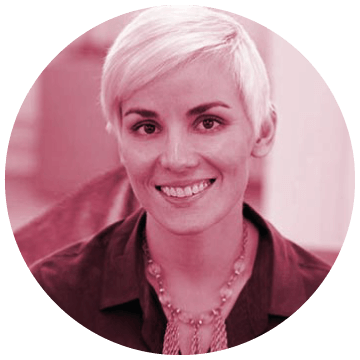
Camille Fournier
Founder at stealth
About Camille Fournier
Camille is the former CTO at Rent the Runway, where she led the team of over 60 engineers building the world’s first short-term high fashion rental site. She is a frequent writer and speaker on the topics of engineering management, leadership, and distributed systems. She serves on the oversight committee for both the Dropwizard web framework and Apache ZooKeeper, and is currently in the early stages of founding her own company.
Overhead, not downtrodden
There are many super-important roles in software teams that are also financial overhead, e.g. QA, Support and Bugfix. They’re necessary, but they require people that would otherwise be working directly on business goals. For leaders of these overhead teams, it can be frustrating, having to justify keeping them well-staffed. We often point to the problems in the business that they address: “We need a big bugfix team, look how many bugs we have!”
But what if we flipped our thinking? Instead of denying that we’re overhead; we embrace it. Instead of using the size of the problem to justify the team size; we aim to reduce both. “Let’s halve our bugfix team by halving the bugs we ship in the first place”. In this talk, using personal examples from JIRA QA and Bugfix, Penny Wyatt will describe how this flip in leadership mindset can lead to happier engineers, teams, stakeholders and customers.
About Penny Wyatt
Penny is a QA and Dev Manager at Atlassian (an Australian software company), working on an issue tracker named JIRA. Her role is to challenge everything that makes sense, and to come up with crazy ideas that improve Atlassian’s quality and devspeed.
Successful experiments include: improving quality by reducing testing; getting better QA engineers by hiring non-testers; and improving devspeed by increasing the scope of dev work.
In previous roles, Penny’s been in dev, testing, dev-in-testing, IT support, and bellringing for weddings. Her favourite hobbies are eating and sleeping, with travelling a close third.

Penny Wyatt
JIRA QA Manager at Atlassian
About Penny Wyatt
Penny is a QA and Dev Manager at Atlassian (an Australian software company), working on an issue tracker named JIRA. Her role is to challenge everything that makes sense, and to come up with crazy ideas that improve Atlassian’s quality and devspeed.
Successful experiments include: improving quality by reducing testing; getting better QA engineers by hiring non-testers; and improving devspeed by increasing the scope of dev work.
In previous roles, Penny’s been in dev, testing, dev-in-testing, IT support, and bellringing for weddings. Her favourite hobbies are eating and sleeping, with travelling a close third.
Welcome from your conference chair
About Meri Williams
Meri is a geek, a manager, and a manager of geeks. She’s a CTO and also runs micro-consultancy ChromeRose, helping digital & technical teams be brilliant. An alumna of Procter & Gamble and the Government Digital Service, she has had a career spanning development, project, programme & product management and more recently engineering & operations leadership. She’s led teams ranging in size from 30 to 300, mostly with folks spread across the world.

Meri Williams
Conference Chair
About Meri Williams
Meri is a geek, a manager, and a manager of geeks. She’s a CTO and also runs micro-consultancy ChromeRose, helping digital & technical teams be brilliant. An alumna of Procter & Gamble and the Government Digital Service, she has had a career spanning development, project, programme & product management and more recently engineering & operations leadership. She’s led teams ranging in size from 30 to 300, mostly with folks spread across the world.
